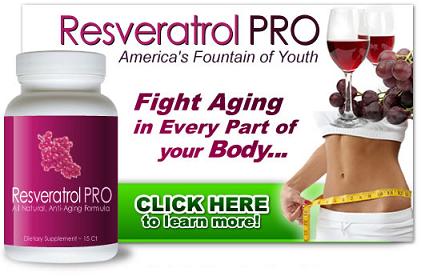Antioxidants - too much of a good thing?
In older men, a natural antioxidant compound found in red grapes and other plants - called resveratrol - blocks many of the cardiovascular benefits of exercise, according to research published today [22 July 2013] in The Journal of Physiology.
Resveratrol has received widespread attention as a possible anti-aging compound and is now widely available as a dietary supplement; much has been made of its role in explaining the cardiovascular health benefits of red wine, and other foods. But now, new research at The University of Copenhagen surprisingly suggests that eating a diet rich in antioxidants may actually counteract many of the health benefits of exercise, including reduced blood pressure and cholesterol.
In contrast to earlier studies in animals in which resveratrol improved the cardiovascular benefits of exercise, this study in humans has provided surprising and strong evidence that in older men, resveratrol has the opposite effect.
What is emerging is a new view that antioxidants are not a fix for everything, and that some degree of oxidant stress may be necessary for the body to work correctly. This pivotal study suggests that reactive oxygen species, generally thought of as causing aging and disease, may be a necessary signal that causes healthy adaptations in response to stresses like exercise. So too much of a good thing (like antioxidants in the diet) may actually be detrimental to our health.
Lasse Gliemann, a PhD student who worked on the study at The University of Copenhagen, explains how they conducted the research, and the results they found: “We studied 27 healthy, physically inactive men around 65 years old for 8 weeks. During the 8 weeks all of the men performed high-intensity exercise training and half of the group received 250 mg of resveratrol daily, whereas the other group received a placebo pill (a pill containing no active ingredient). The study design was double-blinded, thus neither the subjects nor the investigators knew which participant that received either resveratrol or placebo.
“We found that exercise training was highly effective in improving cardiovascular health parameters, but resveratrol supplementation attenuated the positive effects of training on several parameters including blood pressure, plasma lipid concentrations and maximal oxygen uptake.”
 Ylva Hellsten, the leader of the project, says:“We were surprised to find that resveratrol supplementation in aged men blunts the positive effects of exercise training on cardiovascular health parameters, in part because our results contradict findings in animal studies.
Ylva Hellsten, the leader of the project, says:“We were surprised to find that resveratrol supplementation in aged men blunts the positive effects of exercise training on cardiovascular health parameters, in part because our results contradict findings in animal studies.
“It should be noted that the quantities of resveratrol given in our research study are much higher than what could be obtained by intake of natural foods.”
Red wine and resveratrol: Good for your heart?
Red wine and something in red wine called resveratrol might be heart healthy. Find out the facts, and hype, regarding red wine and its impact on your heart.
Red wine, in moderation, has long been thought of as heart healthy. The alcohol and certain substances in red wine called antioxidants may help prevent heart disease by increasing levels of “good” cholesterol and protecting against artery damage.
While the news about red wine might sound great if you enjoy a glass of red wine with your evening meal, doctors are wary of encouraging anyone to start drinking alcohol. That’s because too much alcohol can have many harmful effects on your body.
Still, many doctors agree that something in red wine appears to help your heart. It’s possible that antioxidants, such as flavonoids or a substance called resveratrol, have heart-healthy benefits.
How is red wine heart healthy?
Red wine seems to have even more heart-healthy benefits than other types of alcohol, but it’s possible that red wine isn’t any better than beer, white wine or liquor for heart health. There’s still no clear evidence that red wine is better than other forms of alcohol when it comes to possible heart-healthy benefits.
Antioxidants in red wine called polyphenols may help protect the lining of blood vessels in your heart. A polyphenol called resveratrol is one substance in red wine that’s gotten attention.
This research adds to the growing body of evidence questioning the positive effects of antioxidant supplementation in humans.
Michael Joyner, from The Mayo Clinic USA, says how the study has wider implications for research: “In addition to the surprising findings on exercise and resveratrol, this study shows the continuing need for mechanistic studies in humans. Too often human studies focus on large scale outcomes and clinical trials and not on understanding the basic biology of how we adapt.”
###
Lucy Holmes
.(JavaScript must be enabled to view this email address)
44-020-726-95727
Wiley